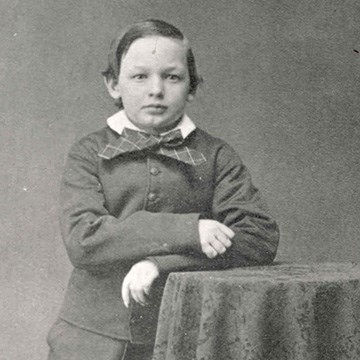We're Going to Parse Lincoln's Greatest Words -- Join in
- edepstein1
- Sep 28, 2023
- 2 min read
By Edward Epstein
Washington, D.C.
Thursday, September 28, 2023
Eight score years ago, exactly, Abraham Lincoln rose before a crowd in Gettysburg, Pa., on November 19, 1863, and uttered 272 simple words that changed history, and spawned millions of words analyzing and dissecting what he meant.

The Lincoln Group will mark the 160th anniversary of the Gettysburg Address with a free-flowing member-led discussion on the evening of Tuesday October 17 on Zoom. All members are invited to tune in and offer their thoughts.
You can register, to make sure you get the Zoom address, by going to the events section of Lincolnian.org and RSVPing.
Three members will kick off the program, each discussing an aspect of the address's meaning. After that, members will get to ask questions or comment.
Tom Peet will open. "I intend to do a deep dive into the opening sentence of the Gettysburg Address and examine why Lincoln saw the Declaration of Independence and not the Constitution as the nation's founding, and that this was a sincere and long-held belief," Tom said. He will also explain how Lincoln described "all men are created equal" and why slavery was the unnamed elephant in the room at Gettysburg.
He will be followed by John O'Brien, former Lincoln Group president and discussion leader of the Lincoln Group Study Forum. John's topic is Lincoln, the address and religion -- Lincoln's heavy use of religious symbols and themes to inspire his listeners. John is primed for the program since the study forum is in the midst of discussing the new second edition of Allen Guelzo's volume Abraham Lincoln: Redeemer President.
The author of this article, Ed Epstein, will then discuss how Lincoln revolutionized American political rhetoric at Gettysburg by abandoning windy orations filled with classical references in favor of deceptive simplicity, something that is devilishly hard to do. Like so many revolutionary moments, Lincoln's new style of communicating at Gettysburg was not universally accepted. There was even resistance.
If members are interested in reading other books on Lincoln and religion before the October 17 program, here are some suggestions: Lincoln: A Life of Purpose and Power by Richard Carwardine and Abraham Lincoln's Political Faith by Joseph R. Fornieri.
Tom's presentation will draw on Lincoln at Gettysburg by Gary Wills, Diana Schaub's His Greatest Speeches and Writing the Gettysburg Address by Martin P Johnson.
Epstein also recommends Wills' book and "Lincoln's Sacramental Language" by Andrew Delbanco, an essay in the book Our Lincoln edited by Eric Foner. He also suggests such other deceptively simple works as Irving Berlin's songs Always and White Christmas and President Franklin D. Roosevelt's speech of December 8 1941 asking for a declaration of war against Japan.
The October 17 program will begin at 6 p.m. Eastern Time with a business meeting and social time. The actual program will start at 6:30 p.m. and end by 8 p.m.
Image from the Library of Congress




Comments